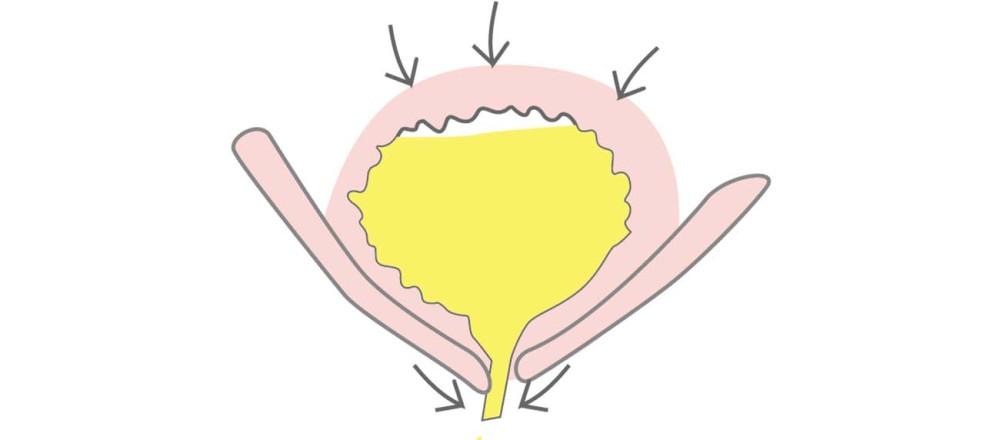Many mothers have found that there are many troubles after giving birth to a baby, and the difficulty of urinating after childbirth is one of them. Postpartum mothers can generally urinate on their own within 4 to 6 hours after a normal birth, and caesarean section mothers generally urinate within 8 hours after the urine catheter is removed.
If urine is not excreted normally 6 to 8 hours after childbirth or removal of the urinary catheter, even during confinement, and the bladder is full and there is a feeling of fullness, then you may have suffered from urinary retention.

Urinary retention occurs mainly after postpartum and gynecological surgery, and the incidence of postpartum urinary retention is 0.05% to 37%. The occurrence of postpartum urinary retention brings many adverse effects to postpartum mothers, such as bladder paralysis, urinary tract infections, increased postpartum hemorrhage, etc., which can easily induce the occurrence of postpartum depression, and even for a long time, postpartum mothers will have abnormal urinary and urinary function. Therefore, if new mothers have such troubles, they need timely treatment.
Why is postpartum urinary retention?
1. Pelvic floor muscle injury
Squeezing the vaginal wall and pelvic floor muscles during childbirth makes the vaginal wall and pelvic floor muscles relax, causing congestion and edema of the urethra and bladder mucosa, and at the same time tearing the perineum during childbirth, resulting in dysfunction of the innervated nerve function of the bladder sphincter, thereby reflexively causing bladder sphincter spasm, damaging pelvic floor function, and making it impossible for women to urinate spontaneously.
2. Psychological factors
During childbirth, due to pain in the abdomen, pain in opening the perineum, reflexive spastic contraction of the urethral sphincter, women are afraid to urinate because of pain.
3. Abdominal wall relaxation
During pregnancy, the abdominal muscles are stretched for a long time, and the postpartum relaxation is weak, resulting in weak urination.
4. If the drug to relieve spasms is used before or during delivery
It can also cause bladder contraction and weakness to cause urinary retention.
5. Bladder nerve dysfunction
After childbirth, due to pain in the perineum, pregnant women dare not urinate, resulting in an overfilled bladder, affecting the contraction and even spasm of the urethral sphincter, resulting in urinary retention.
6. Change in the habit of urination
After childbirth, according to the needs of the disease, some need to be defecated in bed, due to changes in position, so it is difficult to solve.
7. The labor course is too long during childbirth
Excessive length of labor leads to fetal head exposure compression so that bladder tissue edema, frequent urinary catheterization and vaginal operations during labor, instrumental midwifery, caesarean section indwelling urinary catheter time is too long, analgesic pump indwelling time is too long, etc., causing organ congestion, edema, narrowing the urethra and obstructing urination, thereby aggravating urinary retention.